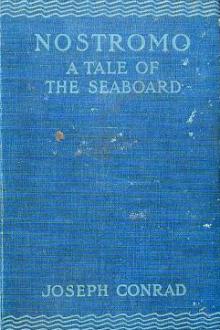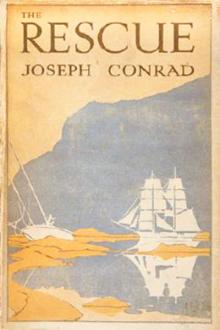Lord Jim
Lord Jim
An ambiguous story many consider to be Conrad's best work, it is a story of remorse and of the effort to regain self-respect for a deed of fatal and unexpected cowardice. The sea and secluded Eastern settlements are the background.
Book Excerpt
elt sure--he alone would know how to deal with the spurious menace of wind and seas. He knew what to think of it. Seen dispassionately, it seemed contemptible. He could detect no trace of emotion in himself, and the final effect of a staggering event was that, unnoticed and apart from the noisy crowd of boys, he exulted with fresh certitude in his avidity for adventure, and in a sense of many-sided courage.
CHAPTER 2
After two years of training he went to sea, and entering the regions so well known to his imagination, found them strangely barren of adventure. He made many voyages. He knew the magic monotony of existence between sky and water: he had to bear the criticism of men, the exactions of the sea, and the prosaic severity of the daily task that gives bread--but whose only reward is in the perfect love of the work. This reward eluded him. Yet he could not go back, because there is nothing more enticing, disenchanting, and enslaving
Editor's choice
(view all)Popular books in Fiction and Literature, Nautical
Readers reviews
4.3
LoginSign up
All the emotions in this story run deep-- the intense desire of Jim to recover his lost honour; Jewel's love for Jim; and finally Doramin's bitter grief at the death of his son Dain Waris, which he views as a result of treachery(even if unintentional) that can be expiated only by the death of Jim himself. Even at the point of death Jim's sense of honour is staunch enough for him to acquiesce with what Doramin thinks.
- Upvote (0)
- Downvote (0)
This is one of the earliest of experimental modernist novels, and brought Conrad to the attention of his contemporary critics. It uses different narrative voices and is chronologically complex. The hero is dealt with ambivalently and with consistent irony.
Jim takes up a career as a young officer in the merchant marine, after a course of 'light holiday literature', believing he is destined to shine heroically. He begins to live in a world of his own delusions as to his abilities and bravery.
He is tested and fails, abandoning the Patna on which he is first mate along with the rest of the disreputable crew, leaving the hundreds of Muslim pilgrims on board to their almost certain fate. The ship does not sink and is rescued and Jim later faces complete shame and the loss of his license and rank.
Marlowe, an experienced sea captain, befriends him, and it is he who narrates the story, with much personal reflection, digression and discussion, with other men of the sea.
Jim's 'case' is reflected on from many points of view, ranging from those who see him as someone who has lost his honour to those who believe he should have another chance. Marlowe's own position is intelligently ambivalent and critical, though generally sympathetic.
Jim eventually gets a second chance when he is offered the chance to run a remote trading station in Patusan (in the interior of Borneo). It seems that through a number of clearly heroic and decisive acts Jim redeems himself and becomes 'Lord Jim' among the natives whom he protects. All seems well until the final showdown with 'Gentleman Brown', when the reader is asked to reevaluate his/her position once again.
Jim takes up a career as a young officer in the merchant marine, after a course of 'light holiday literature', believing he is destined to shine heroically. He begins to live in a world of his own delusions as to his abilities and bravery.
He is tested and fails, abandoning the Patna on which he is first mate along with the rest of the disreputable crew, leaving the hundreds of Muslim pilgrims on board to their almost certain fate. The ship does not sink and is rescued and Jim later faces complete shame and the loss of his license and rank.
Marlowe, an experienced sea captain, befriends him, and it is he who narrates the story, with much personal reflection, digression and discussion, with other men of the sea.
Jim's 'case' is reflected on from many points of view, ranging from those who see him as someone who has lost his honour to those who believe he should have another chance. Marlowe's own position is intelligently ambivalent and critical, though generally sympathetic.
Jim eventually gets a second chance when he is offered the chance to run a remote trading station in Patusan (in the interior of Borneo). It seems that through a number of clearly heroic and decisive acts Jim redeems himself and becomes 'Lord Jim' among the natives whom he protects. All seems well until the final showdown with 'Gentleman Brown', when the reader is asked to reevaluate his/her position once again.
08/24/2010
Romantic book, exceptional. Young homeless men on the sea.
The sea is his life. He say good-bye under the dramatic circumstances. And... mystery - to the end.
The sea is his life. He say good-bye under the dramatic circumstances. And... mystery - to the end.
07/06/2009

 Free Download
Free Download

































